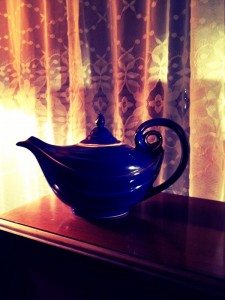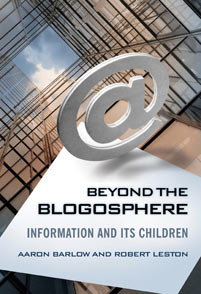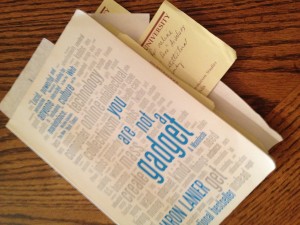First of all, do you write? Do you jot down tidbits on napkins or take notes on your phone? For some people, words and phrases are more important than photos or physical objects. Our tech gadgets allow us to interconnect across space, sharing photos and ideas immediately. I wonder if this immediate shared expression is changing the writing process. The recursive process, in the past, took the writer through the process of contemplating ideas, gathering them, planning, pre-writing, revising, editing, and finally (FINALLY) sharing writing with an audience. Today, typos in most of our writing are completely acceptable. Revision is emphasized only for our formal (e.g. job application or peer reviewed article) correspondence.
So, if you write, what is your preferred location?
My best writing is done in my son’s old room, now converted to my office. I have pens, post-its, books and clutter scattered about and two computer screens at my fingertips. My pre-writing strategies now include: notes to myself on my phone, emails to self from numerous accounts, google docs, tweets, flashdrives in my purse, and a zillion post-it notes stuck everywhere! Jotting a thought on a post-it is more about the act of writing it down (kinetic trigger) than a plan to find it later. I appreciate a random encounter with a meaningful “note to self” — but the really significant (ah-ha) tidbits are stashed away in special locations. This is making me think I could be a word hoarder! I do love words and the way they can symbolize everything. I do believe they are more powerful than swords.
Digital tidbits
I keep a file on my computer for blogpost ideas and folders of potential articles, poems, or other writing pieces. I used to feel frustrated about keeping all of the writing tidbits organized, but I have learned to accept digital clutter since Windows 7 can find just about anything on my computer just by typing in a keyword. Using keywords in my file labels has become top priority.
Physical Tidbits
I have a beautiful blue pot, shaped like Aladdin’s lamp. Inside, I place scraps of paper on which I have recorded my significant thoughts and words and lines that come into my head like found poems. It is a physical object full of my personal glimpses of life. I have been adding them for several years. Someday, I plan to take the time (when the serendipitous moment strikes), to open the pot and look through them all and perhaps rediscover a personal gem. The writing process is a treasure hunt whether shared with the crowd or savored alone.






